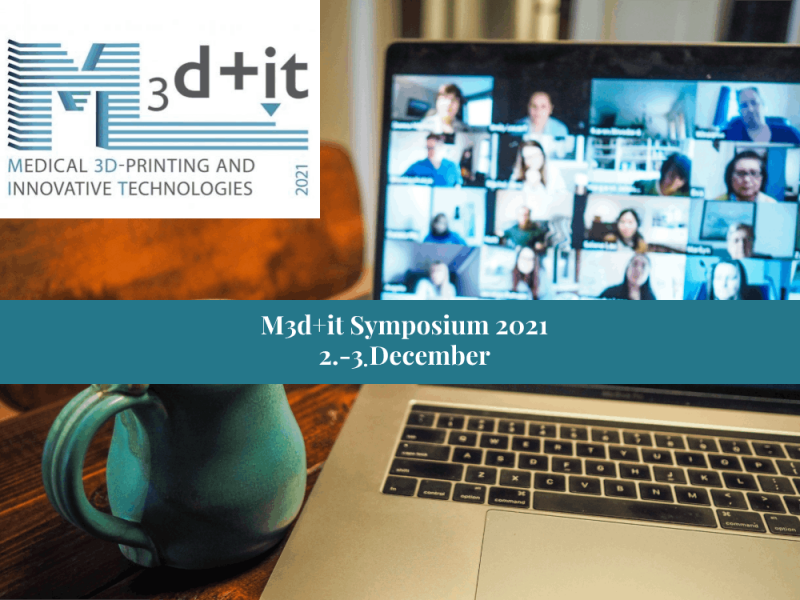The Medical 3D Printing and Innovative Technologies symposium, M3d+it, is a platform that promotes 3D printing in medicine and brings together health professionals, doctors and researchers and companies in the field.
In this year´s event, 25 speakers have been invited from different disciplines, including additive manufacturing, medical device design and simulation, as well as tissue engineering and medical use cases. Networking among actors in the field and national and international projects will be fostered as well. Due to the worsened Covid-19 situation, the M3d+it symposium is transferred totally online this year and arranged on the 2nd and 3rd of December.
Brinter’s Product manager, Sanna Turunen, will give a presentation in the M3d+it symposium about Brinter’s activities in the RESTORE project on the 3rd of December with the title “RESTORE: Cartilage Bioprinting Technology Development”. The presentation is scheduled to start at 9:35 (UTC+1).
Abstract
Chondral lesions constitute one of the major extrinsic risk factors for Osteoarthritis (OA), leading to significant societal and economic burden. OA is a highly prevalent condition that can result in disabling pain and loss of physical function.
Horizon 2020 project RESTORE aims to develop and validate nanoenabled solutions in pre-clinical animal models for personalised cartilage regeneration. Different strategies are undertaken to overcome the current challenges and unmet clinical necessities in order to design the most efficient solution towards cartilage repair. RESTORE is building tailored nanocarriers based on polymeric nanobiomaterials, designed to modulate undesirable biological events (inflammation, proteolytic degradation, and bacterial infection), and remotely stimuli-responsive nanobiomaterials to enhance cartilage repair.
Smart 3D matrices for severe and mild chondral lesions are created by integrating nanobiomaterials in COPLA® Scaffold (severe lesions) already present in the animal health market and in bioink used for bioprinting of personalised cartilage tissue (mild lesions).
Brinter’s role in the RESTORE project is to facilitate the development of 3D bioprinter technology towards cartilage printing by implementing novel printing modalities into the bioprinting platform. The process also involves optimisation of the bioink composition and printing protocols.



